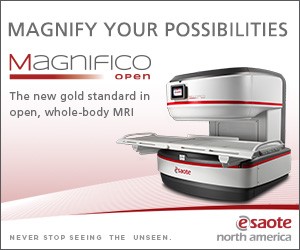|
E-Newsletter • April 2023 |
Editor's E-Note
Among the many complications of COVID-19, one of the least understood is the mechanism behind some people’s loss of smell. Researchers in the United Kingdom attempted to understand the phenomenon better with MRI. Their conclusions offer hope for those suffering from long COVID who have not regained their sense of smell. For more details, check out our e-News Exclusive.
Is your facility seeing many patients with long COVID? Let us know on Twitter and/or Facebook.
Enjoy the newsletter.
— Dave Yeager, editor |
|
|
| In This E-Newsletter
|
▼ ADVERTISEMENT
 |
|
|
Long COVID Smell Loss Linked to Brain Changes
People living with long COVID who suffer from loss of smell show different patterns of activity in certain regions of the brain, a new study has found. The research used MRI scanning to compare the brain activity of people with long COVID who lost their sense of smell, those whose smell had returned to normal after COVID infection, and people who had never tested positive for COVID-19.
Published in eClinicalMedicine, the observational study found that people with long COVID smell loss had reduced brain activity and impaired communication between two parts of the brain that process important smell information: the orbitofrontal cortex and the prefrontal cortex. This connection was not impaired in people who had regained their sense of smell after COVID.
▼ ADVERTISEMENT

The findings suggest smell loss, known as anosmia, caused by long COVID is linked to a change in the brain that stops smells from being processed properly. Because it’s clinically reversible, as shown in some subjects, it may be possible to retrain the brain to recover its sense of smell in people suffering the side effects of long COVID.
Jed Wingrove, PhD, of the division of medicine at University College London and lead author of the study, says, “Persistent loss of smell is just one way long COVID is still impacting people’s quality of life. Smell is something we take for granted, but it guides us in lots of ways and is closely tied to our overall wellbeing. Our study gives reassurance that, for the majority of people whose sense of smell comes back, there are no permanent changes to brain activity.”
|
Radiology Models Could Reduce Climate Change Effects
A special report published in Radiology reveals the connection between radiology departments and climate change, laying out the importance of making key changes to slow the progression of climate change.
▼ ADVERTISEMENT

DBT Shows Promising Cancer Screening Results
When compared with digital mammography, digital breast tomosynthesis improves cancer screening performance and can detect more invasive cancers, according to a study published in Radiology.
Qualities of TIRADS Categories Reveal Malignancy
In a study presented at the American Roentgen Ray Society 2023 Annual Meeting, it was discovered that certain qualities, specifically vascularity and elastography in TIRADS categories, can uncover malignancy of thyroid nodules. |
“The PSG score can enable better stratification of patients based on the response to 177Lu-PSMA therapy and will assist individual clinical decision-making. These findings will be valuable in advancing precision medicine in the theranostics field.”
— Jeremie Calais, MD, MSc, an associate professor and director of the Clinical Research Program of the Ahmanson Translational Theranostics Division, on a new PSMA PET scoring system that determines if mCRPC patients respond to Lu-PSMA therapy |
|
|
COVER STORY
Golden Opportunity?
Opportunistic imaging, the process of retrieving additional data from imaging scans, stretches the value of imaging techniques such as CT and is catching the attention of radiologists for its perceived low risk and high reward.
FEATURE
Flexible Fluoroscopy
Experts are making fluoroscopy more efficient than ever, with lower doses, faster speeds, and more functionality.
|
|
|
| Advertising Opportunities |
Have a product or service you want to market to radiology professionals? Utilize the reach of Radiology Today Magazine to accomplish your marketing goals. Email our experienced account executives today at sales@gvpub.com or call 800-278-4400 for more information.
|
| © 2023 Radiology Today Magazine |
|
|